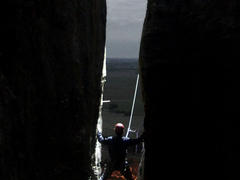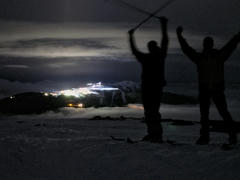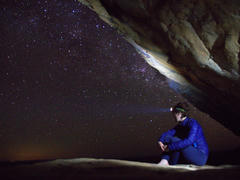My torch flickers, and then goes out. Halfway through the second pitch, I call out below something to make my belayer worried. Stopping to take stock, behind me are yells and hoots, a couch burning bonfire rages in the campsite. Our friend is making funny noises around the corner on Agamemnon. Waiting was worthwhile, the moon shines through and lights the route ahead.”* - 30th June 2015
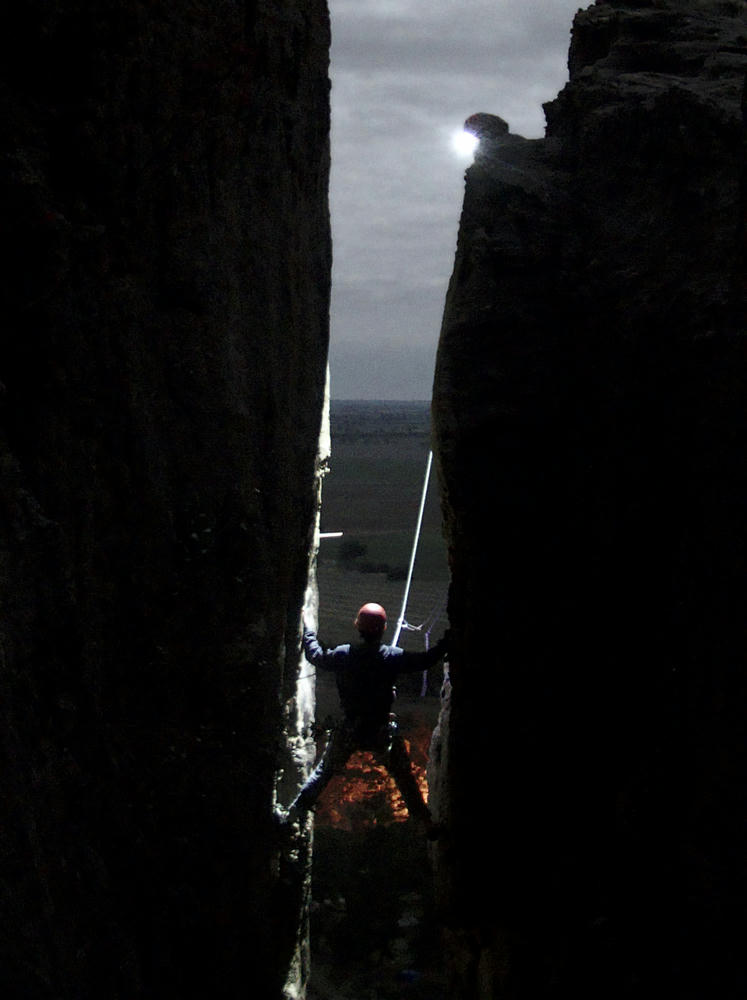
“It was dark, so we backed off from a climb and went exploring for another way up the Horn instead. We found a cave which lead to nowhere, that was fun. We then found ourselves a bit lost and bush bashing. Finally someone at the carpark heard us!” - Mid 2015
“Stepping away from my partner and out over the void. I've been here during the day, I know what it looks like down below, but in the darkness the imagination can have free reign.” - 20th of June 2016
“Excited to have made it to the top. With the air clear between us, Mt Buller floats like a sky city between the clouds.” - 8th of July 2016
“We sit perched at the top of the tower as the light fades and waves crash below. It’s getting cold, but I would happily sit here all night”- 29th of October 2016
To me, the night is exciting and irresistibly appealing. With sight diminished, I find myself paying more attention to my partners, and the other senses. The experience becomes a little surreal. I do struggle with balancing the desire to prance under the starlight with the voice of reason, comfort and safety. I know that climbing, skiing and even walking at night holds an extra element of risk, but romantic notions often get the better.
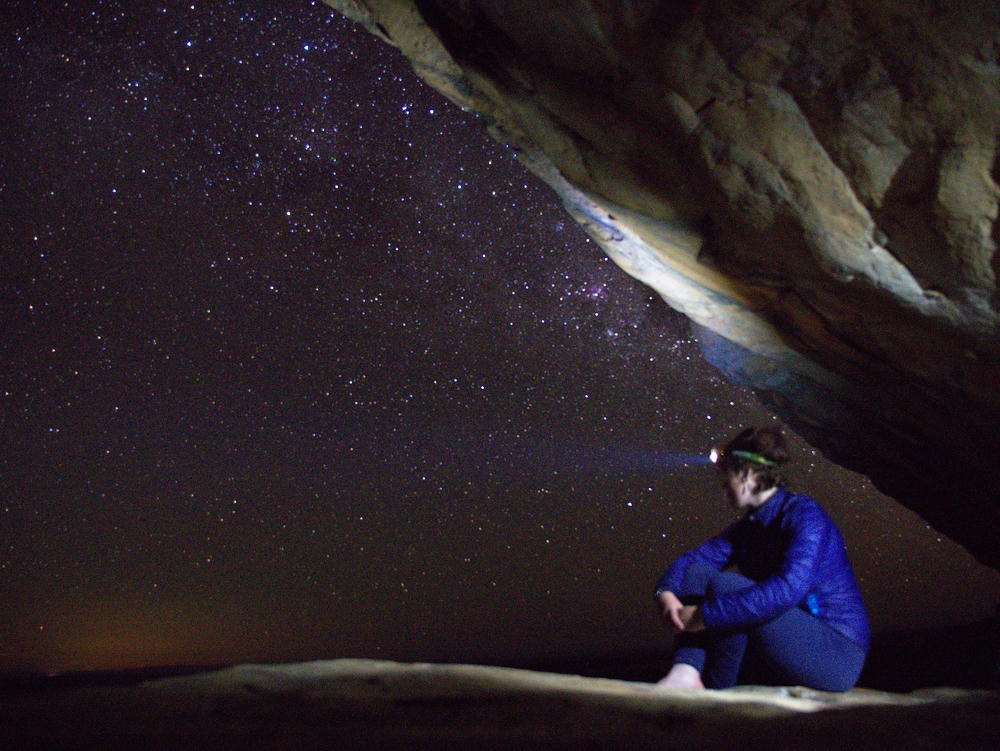
Coming to the realisation this past year that this particular personal factor has had the ability to affect my ability to make rational and safe decisions prompted a deeper look into why this occurs, and what can be done about it.
Human factors are the primary factors in a large percentage of outdoor accidents. You can be an expert in hazard evaluation and risk evaluation in your chosen activity, but this will take a back seat if through overconfidence, complacency, arrogance, or a whole host of other personal reasons and emotions you decide to ignore your better judgement and continue anyway.
The study Evidence of Heuristic traps in recreational avalanche accidents by Ian McCammon and Bruce Temper’s Staying Alive in Avalanche Terrain identify a number of number of “simple rules” or “mental shortcuts” that humans appear to unconsciously follow when presented with complex situations:
- Familiarity, we tend to be more comfortable in situations with which we are familiar. For example, if you are familiar with being at heights, you get more comfortable with it, and as a result are more likely to take risks while at heights.
- Acceptance, we like to seek acceptance from others.
- Commitment, when we are committed to a goal or to an identity we wish to attain/sustain.
- “Expert Halo”, completely trusting and relying on the decisions of those we perceive to be experts.
- Competition/Scarcity, when something is in short supply, or we are competing with others.
- “Social Proof”, when we feel more comfortable following the opinion of the crowd, “herd mentality” and perception of safety in numbers.
- “Risk Homeostasis”, our risk appetite/tolerance is fairly stable in the short term. Advances in risk management technology or technique which are considered to reduce risk in our activities result in us deciding to undertake correspondingly riskier activities in order to maintain this appetite that satisfies our cravings.
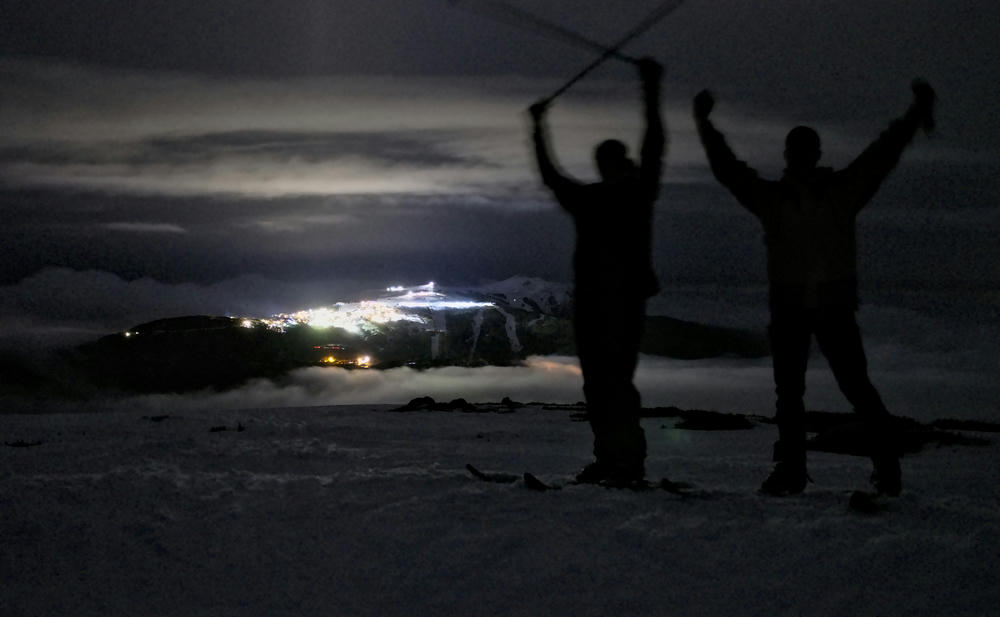
Recognising the factors within ourselves which affect our ability to make quality decisions in the outdoors, and being honest about them to both ourselves, and to our partners could go a long way towards being able to reduce their unwanted impact on the choices we make.
It’s also possible that a group may consciously and deliberately submit to some of these factors. A little competition, commitment to a goal, leadership respect and an appetite for risk aren’t necessarily a bad thing if they are carefully considered, limited, accepted and monitored by every group member. Looking back, I notice that on a number of occasions (especially ones in which I was personally involved), when this care is not taken, situations can rapidly spiral out of control and become unacceptable for the entire group, or for individuals within the group.
With the right mindset, the right people, the right skills, and some functional head-torches, adventuring under the stars can be super enjoyable, with little by way of regret.
